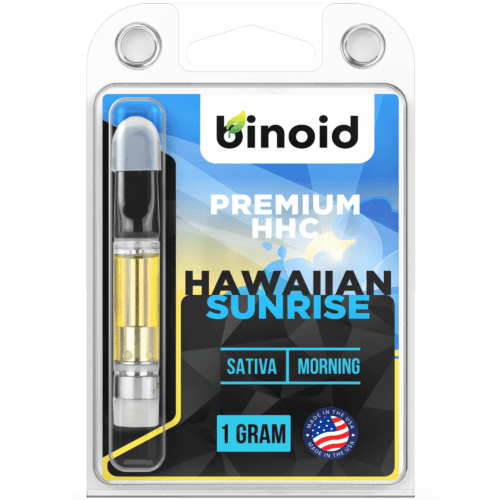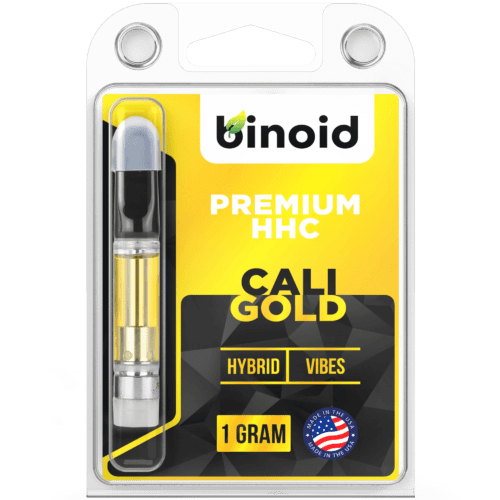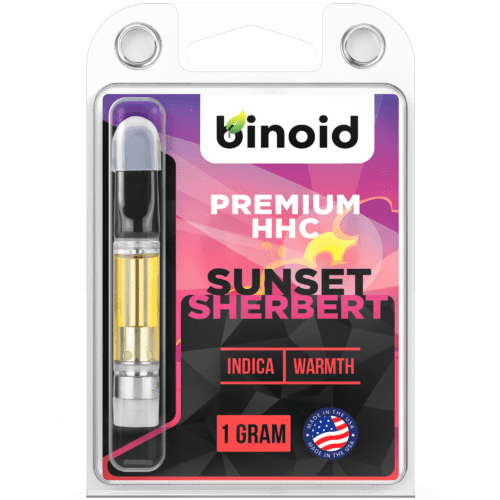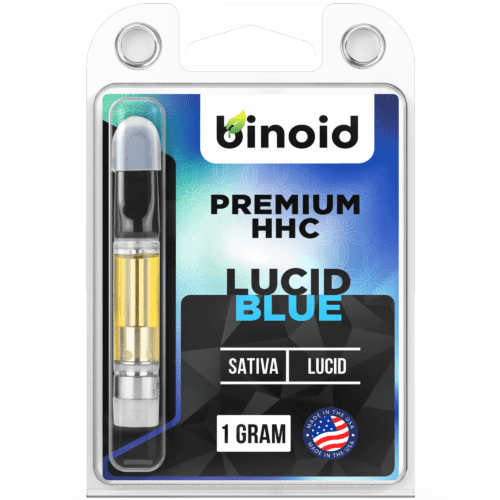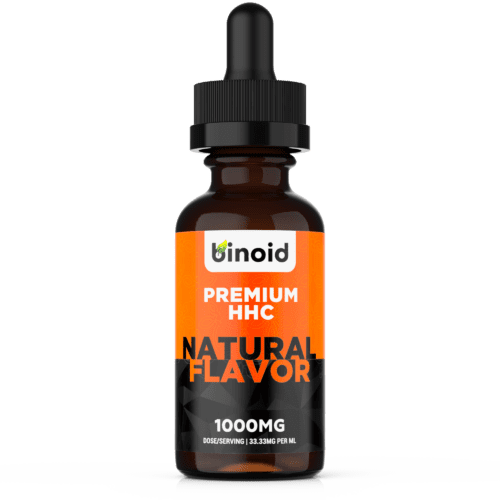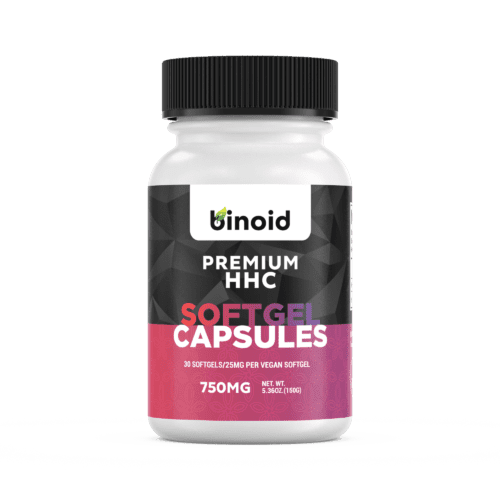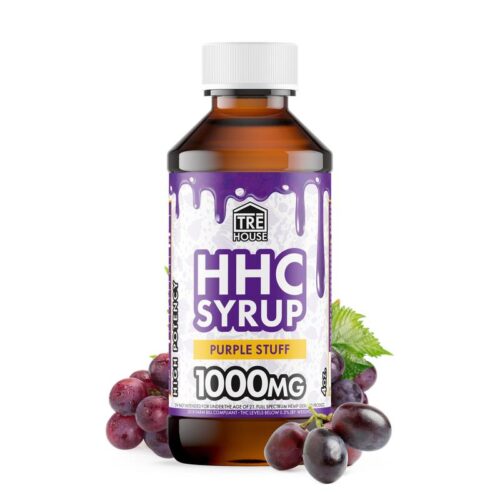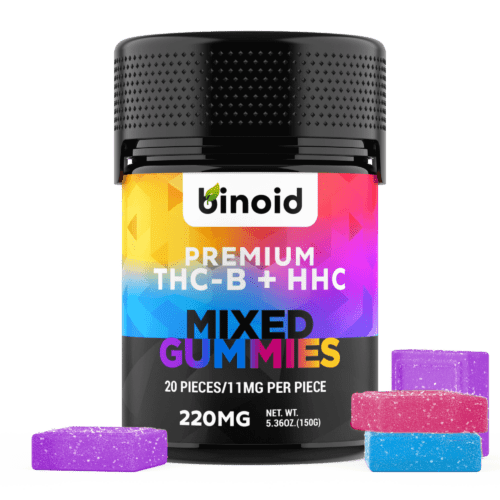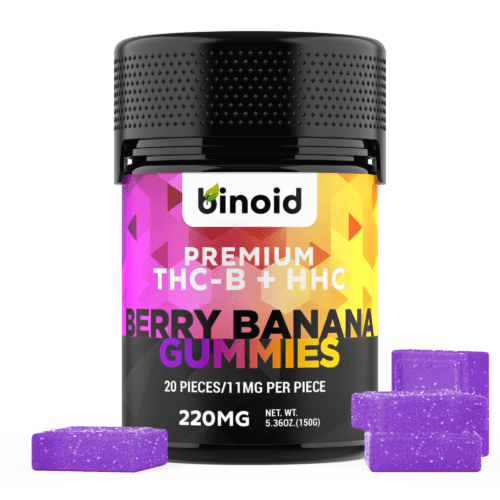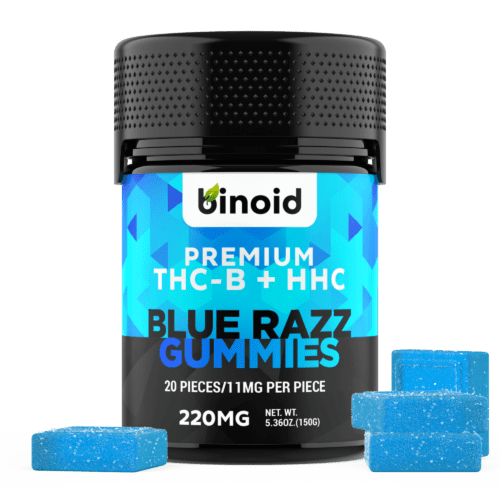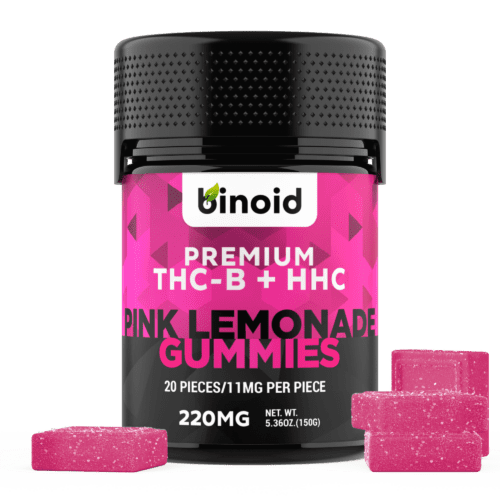HHC has been getting quite a lot of buzz lately, mainly because of how this cannabinoid behaves quite similarly to delta 9 THC in the body, while not being banned legally. HHC is now easy to find on the market, with various HHC product forms like HHC vapes, HHC gummies, and HHC tinctures; all providing a psychoactive high and other desirable effects derived from its influence on the endocannabinoid system (ECS).
With HHC being so popular, it’s important that go over how long it can stay in the body after being consumed. Anyone who gets drug-tested will also want to pay close attention, because the process of metabolization associated with the cannabinoid can influence what their test results would be.
To Buy HHC Products Click Here
How Long Do the Effects of HHC Typically Last in Our System for?
Obviously, it’s very important to know how long it takes for HHC to metabolize, but we also need to talk about how long its actual effects can be felt based on how this cannabinoid gets absorbed into the system, as this plays a role as well. Be mindful of the fact that after you no longer feel the high of HHC, it’s still in your body, getting processed by enzymes so that it may be fully metabolized, and then eventually fully cleared out of the body, primarily through urination.
Hexahydrocannabinol (HHC) is a naturally occurring cannabinoid found in hemp that’s known to behave almost identically to delta 9 THC, and, is also only slightly milder when it comes to the potency of its high. HHC therefore is intoxicating, and that’s the primary reason why people enjoy taking it.
How long the effects of hexahydrocannabinol last depends mainly on the product type you take. Since different delivery methods absorb at unique rates, this influences the duration of the effects. Other things that have an influence include your personal tolerance to HHC, as well as the amount that you’ve taken in one sitting.
- Inhalable Products (Vapes, Dabs, Flower): A product that is inhaled, such as a hhc vape cart, a disposable pen, a dab (concentrate), or flower, is going to absorb the fastest into the body, and as a result, provide shorter-lasting effects – about 1 to 2 hours, generally speaking.
- Ingestible Products (Edibles, Capsules): If you’re ingesting the cannabinoid, then it’s going to take the longest to absorb into the body, and thus, produce the longest-lasting effects – about 8 or so hours, according to most users, regardless of whether you’re taking a HHC gummy, HHC capsule, or consuming a beverage.
- Sublingual Products (Tinctures): If you’re taking an HHC tincture, then its absorption rate is about right in between that of edibles and inhalable products. On average, people will feel the effects of an HHC tincture for about 4 to 6 hours, depending on the amount they have consumed.
Is There a Duration of Time When HHC is Supposed to Leave Our System?
After you’re done enjoying your hexahydrocannabinol (HHC) high, the cannabinoid is still in the body, actively getting broken down by metabolites so that it can make its way out of the body until there is no longer a trace left in the system. This is true of any substance, including prescription medications – even after the effects have worn off, the substance can remain in your body for a surprising length of time. So, it’s not surprising that traces of HHC can be detected for a while after you last consumed it.
Now, how long hexahydrocannabinol can be detected in the body can range from about 2 to 23 days, and we know that’s quite a large range. It’s because there are so many factors that influence how much HHC is in your system, including how frequently you consume it and low large your last dose was. In most individuals:
- About half of the HHC gets metabolized within 30 minutes of full absorption, as in, when you first start to feel its effects.
- 30 minutes later, another 25% has metabolized.
- It’s that pesky 25% that remains which can linger for an extended period of time, as the metabolization process has now slowed down.
What This Means for Drug-Testing Purposes
Hexahydrocannabinol (HHC) may or may not impact a drug test – we are still not sure how it metabolizes. But, if we are to assume that it metabolizes like any other THC compound, then yes, it can lead to a failed drug test. Which kind of drug test your given will affect how likely you are to fail, based on when you last consumed HHC.
Method #1: Urine Tests: 90% of probation officers and employers rely on urine-based testing for its accuracy, easy administration and low cost. A urine test looks for THC-COOH, a metabolite that breaks down all THC compounds. It can show results based on up to several weeks since the last usage.
Method #2: Saliva Tests: Saliva tests are going to only show you whether or not THC has been used within the last 10 hours, and they’re not known for their profound accuracy. They’re usually used by law enforcement officials, mainly to test a person who may be driving while intoxicated.
Method #3: Blood Tests: A blood test is used to show whether or not a person is actively intoxicated, since intoxication ends when the substance is no longer present in the blood. You’ll most likely see this testing method in a hospital setting.
Method #4: Hair Tests: A hair strand test is very expensive, and the results take a long time to come back. It shows whether or not a person has used a substance about a few months after it was last administered, since it takes this long for the substance to enter the hair. It’s usually reserved for autopsies.
Method #5: Perspiration Tests: A perspiration test looks for THC-COOH in a person’s sweat, by attaching a patch to their skin for 2 weeks. It’s expensive and invasive, and usually administered for clinical research.
What Actually Plays a Role in How Long HHC Could Normally Last in the Body For?
There are, in fact, a lot of variable to consider that all influence how likely you are to fail a test after taking HHC. Like we said, we aren’t even sure how HHC metabolizes yet, so we can’t offer precise information about how it may influence a test. But, should it metabolize like THC compounds, these things below all must be considered.
#1: Frequency of HHC Use
Of course, how often you use HHC products makes a difference. The more frequently you take it, the more accumulates in the body, and the longer it takes before it’s all cleared out of the system. Taking it daily is going to put you at more risk than taking it once every couple of weeks.
#2: HHC Product Delivery Method
We said earlier that different delivery methods affect how long the effects last. These same delivery methods can influence how long the actual cannabinoid lasts in the body. Long-lasting products like HHC edibles may take longer to clear than ones that are short-lived, such as vaping products.
#3: HHC Product Strength
An HHC product’s milligram strength can influence how much remains in the body while being metabolized. A higher strength is going to mean that there’s more HHC in the body, and this will require more time to fully clear.
#4: Your Metabolism
Some of us just have faster metabolisms than others due to the nature of our body. Besides that, how much we drink water, how much we exercise and how much we take care of our health overall can influence how long it takes for our metabolisms to break down various substances.
#5: When You Last Took HHC
How recently you took HHC is the most important aspect of all. A urine test may show usage dating back to 6 weeks if you were taking strong enough concentrations on a regular basis, so consider this if you do have a test coming up.
#6: Product Quality
Some products that contain HHC may be low in quality. Hence, they have lower purity or potency levels than they claim based on age of the product or how it was extracted. This means that you may be taking in less HHC than you thought you were.
How Long After Using HHC is it Safe to Take Any Type of Medication (Prescription or Non-Prescription)?
Keep in mind that hexahydrocannabinol, along with other cannabinoids, can suppress the CYP3A4 enzyme needed to break down many medications. When there isn’t enough CYP3A4 in the body, medications can build up in the blood rather than metabolize properly, leading to potentially dangerous consequences.
Due to no real research conducted on hexahydrocannabinol and CYP3A4, we can’t offer guidance on using HHC when on a medication. What we can say is that if you’re taking a medication and want to try an HHC-infused product, it is best to speak with your doctor first. They can offer personalized advice based on your unique circumstances.
The Bottom Line: It All Depends
Hexahydrocannabinol (HHC) is a psychoactive cannabinoid, and it’s such a new addition to the market that our understanding of how it’s metabolized by the body is, unfortunately, very limited. This means that we can’t really give a clear answer about how long it takes to leave the body, or even what its effects could be on a drug test. What we can say is that if you want err on the side of caution, you should probably consider just avoiding taking HHC completely until your test is over.


